If you're a fan of Larry David's hilariously awkward and cringe-inducing humor in 'Curb Your Enthusiasm,' you're in for a treat. This article explores 10 movies and TV shows that capture the same irreverent, unapologetic, and brilliantly uncomfortable comedy style. Whether you love Larry's social missteps or the show's improvisational brilliance, these recommendations will keep you laughing just as hard.
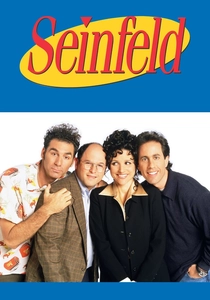
Seinfeld (1989)
Description: Seinfeld shares similarities with Curb Your Enthusiasm in its focus on the minutiae of everyday life and social faux pas. Both shows were created by Larry David and feature a semi-improvised dialogue style, though Seinfeld is more scripted. The humor in both shows often stems from awkward social interactions and the characters' self-absorption.
Fact: Seinfeld was initially pitched as 'a show about nothing,' emphasizing its focus on everyday situations. The character of George Costanza is based on Larry David himself. The show's famous 'Soup Nazi' episode was inspired by a real-life soup vendor in New York City.
 Watch Now
Watch Now 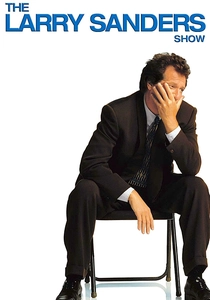
The Larry Sanders Show (1992)
Description: The Larry Sanders Show shares Curb Your Enthusiasm's behind-the-scenes look at the entertainment industry and its use of cringe humor. Both shows feature a protagonist who is somewhat unlikable yet compelling, and both utilize improvisational elements in their performances.
Fact: The show was one of the first to use a single-camera setup without a laugh track, a style later adopted by Curb Your Enthusiasm. Many episodes feature real-life celebrities playing exaggerated versions of themselves. The show's theme song, 'Friends,' was written and performed by its star, Garry Shandling.
 Watch Now
Watch Now 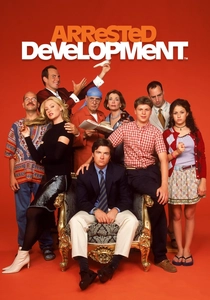
Arrested Development (2003)
Description: Arrested Development shares Curb Your Enthusiasm's fast-paced, layered humor and its focus on a dysfunctional family (or in Curb's case, a dysfunctional individual). Both shows use callbacks and running gags extensively, and both feature characters who are largely unaware of their own flaws.
Fact: The show was almost canceled after its first season due to low ratings but was saved by critical acclaim. The character of Tobias Fünke was originally written for David Cross, who had to audition for the role despite being the first choice. The show's narrator, Ron Howard, is also one of its executive producers.
 Watch Now
Watch Now 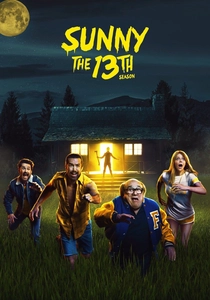
It's Always Sunny in Philadelphia (2005)
Description: It's Always Sunny in Philadelphia shares Curb Your Enthusiasm's focus on deeply flawed, self-absorbed characters who often make terrible decisions. Both shows use dark humor and often put their characters in increasingly absurd situations.
Fact: The show was originally rejected by several networks before being picked up by FX. The main cast members, known as 'The Gang,' are also the show's creators and executive producers. The show is known for its long-running gags, such as Charlie's illiteracy and Frank's increasingly bizarre behavior.
 Watch Now
Watch Now 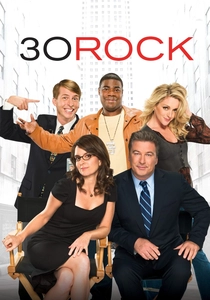
30 Rock (2006)
Description: 30 Rock shares Curb Your Enthusiasm's behind-the-scenes look at the entertainment industry and its use of rapid-fire, often absurd humor. Both shows feature a mix of scripted and improvised dialogue, and both are known for their celebrity cameos.
Fact: The show is loosely based on Tina Fey's experiences as a writer on Saturday Night Live. The character of Jack Donaghy was inspired by several real-life NBC executives. The show won multiple Emmy Awards, including three for Outstanding Comedy Series.
 Watch Now
Watch Now 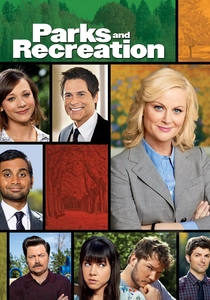
Parks and Recreation (2009)
Description: Parks and Recreation shares Curb Your Enthusiasm's focus on the quirks of local government and community interactions, though with a more optimistic tone. Both shows use improvisation to enhance their scripts, and both feature a mix of cringe humor and heartfelt moments.
Fact: The show was originally conceived as a spin-off of The Office. The character of Ron Swanson was inspired by a real-life libertarian who worked in local government. The show's mockumentary style was influenced by shows like The Office and Modern Family.
 Watch Now
Watch Now 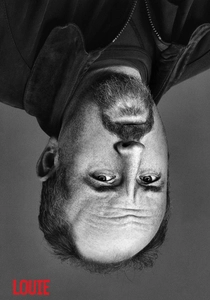
Louie (2010)
Description: Louie shares Curb Your Enthusiasm's semi-autobiographical approach and its blend of comedy and drama. Both shows feature a protagonist who is a comedian navigating the complexities of everyday life, and both use a loose, episodic structure.
Fact: The show was created, written, directed, and edited by Louis C.K. Many episodes are based on Louis C.K.'s stand-up routines. The show was praised for its innovative storytelling and willingness to tackle serious subjects.
 Watch Now
Watch Now 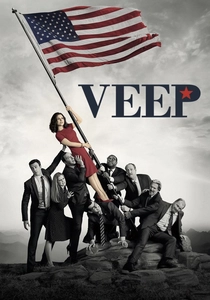
Veep (2012)
Description: Veep shares Curb Your Enthusiasm's sharp, often profane dialogue and its focus on the absurdity of power and social hierarchies. Both shows feature protagonists who are deeply flawed yet oddly sympathetic, and both use improvisation to enhance their scripts.
Fact: The show's creator, Armando Iannucci, is known for his work in British political satire. Julia Louis-Dreyfus, who stars in Veep, also appeared in Seinfeld, another show with ties to Curb Your Enthusiasm. The show won multiple Emmy Awards, including three for Outstanding Comedy Series.
 Watch Now
Watch Now 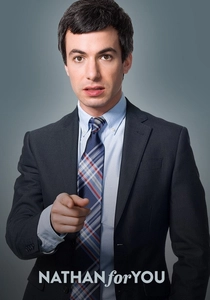
Nathan for You (2013)
Description: Nathan for You shares Curb Your Enthusiasm's use of cringe humor and its focus on social awkwardness. Both shows feature a protagonist who is oblivious to social norms, and both use improvisation to create a sense of realism.
Fact: The show's premise involves Nathan Fielder offering absurd business advice to real small business owners. Many of the show's segments involve elaborate pranks or social experiments. The show was praised for its unique blend of comedy and documentary filmmaking.
 Watch Now
Watch Now Silicon Valley (2014)
Description: Silicon Valley shares Curb Your Enthusiasm's satirical take on a specific subculture (tech startups vs. Hollywood). Both shows feature awkward, often cringe-inducing social interactions, and both use improvisation to create a more naturalistic comedic style.
Fact: The show's creator, Mike Judge, also created Beavis and Butt-Head and King of the Hill. Many of the show's tech references are based on real-life Silicon Valley events. The character of Erlich Bachman was inspired by real-life tech entrepreneur Sean Parker.
 Watch Now
Watch Now 








